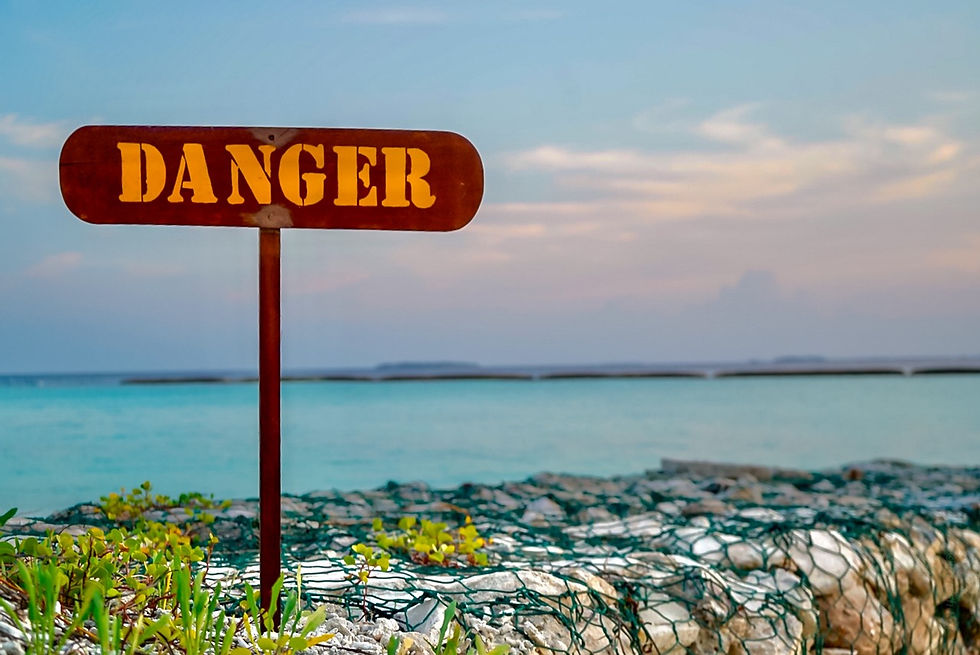Why do Bison Snort?
- JJ Bison

- Mar 26, 2021
- 3 min read

If you’ve had the opportunity to see a bison in person, you’ll notice that they sometimes make a snorting sound. In this post, we’ll examine why bison snort and what it means. This article is especially important if you see a bison in person when exploring the wild west!
Bison Warning
In popular videos about bison, you may have seen bison snorting, head shaking, or foot-stomping before charging. Bison, while normally happy and playful, are incredibly agile, can run up to 35 MPH, and jump over 6 feet in the air! Because of their size and ability to move quickly, they can be incredibly dangerous animals. When bison snort, they may be warning someone or something nearby to stay back, or else it may defend itself.
If you’re visiting out west and see a bison, please do stay away from the bison and look out for these key signs of aggression:
Snorting
Making direct eye contact
Shaking of the head and horns
Pawing or rolling
Advancing towards an object or person with its head lowered and tail erect
If you are near a bison when any of these signs occur, it is your signal to quickly leave the area.
How To Avoid Angering Bison
As previously discussed, bison are generally peaceful creatures. You do, however, want to make sure you are avoiding key traits that may escalate the issue. Bison attacks are rare and should be avoided.
If you see a bison while in your car, drive slowly and they will eventually move. Avoid speeding, making loud noises, or exiting your vehicle. Like moose, bison do not like to be startled and should not be messed with.
Avoid spooking the bison. Whether you are in the car, on a horse, on a walk, etc., please do signal you are there and walk away. Ideally, you want to be over the size of a football field away from a bison. As we previously mentioned, bison can run over 35 MPH which is over 10 MPH faster than Usain Bolt can sprint.
When you see the above warning signs, cautiously walk away.
What to do if a Bison Charges?
If you did stumble onto a bison that is charging you, definitely run away. The bison is faster than you and is likely just trying to protect his/her herd from a perceived threat.
Run for cover and try to stay behind something, like a large tree. This is similar to how one should run from a moose. You put a large object in between you and the bison to avoid being hurt.
Climb a tree! Bison can jump pretty high in the air, but cannot climb a tree (weird, right?).
Keep your distance and run.
At JJ Bison, our bison are kept behind an electrically charged fence with 7,000 volts, but you should still follow the above warnings. Our bison are happy and have a large area to roam with plenty of food and water, so they are not seeking to leave the area. Bison who are out in the wild do not have these benefits and are not as used to humans as our bison are. We take the same precautions as written above, and only enter the field to move the bison with heavy equipment. This should not be attempted by anyone who is not trained in the wild or who owns a farm, and should even still be educated and exercised with caution.
Vocalization
Although bison snorts can be a warning sign, bison sometimes snort to be vocal. Think of a pig who often oinks while at a farm. This is not a sign of aggression or discomfort, but instead can be used to communicate with others. The same pattern can apply to bison. Grunting or snorting is often seen in more adult bison and is commonly done by adults when moving around younglings or female bison. This is basically the adult bison telling the younglings that it’s coming through and just wants the others to move aside.
Bottom Line
When a bison snorts, it can mean a number of things including communicating with their fellow bison or providing a warning to those approaching it to stay back. At JJ Bison, we recommend staying at least a football field away from a bison, and even recommend staying further back if possible. We are trained and have more domesticated bison than the wild bison. They're truly beautiful animals and deserve respect and personal space.
Contact us online, email us at meat@jjbison.com, or call us at (443) 252 - 2099 to order your bison today!



